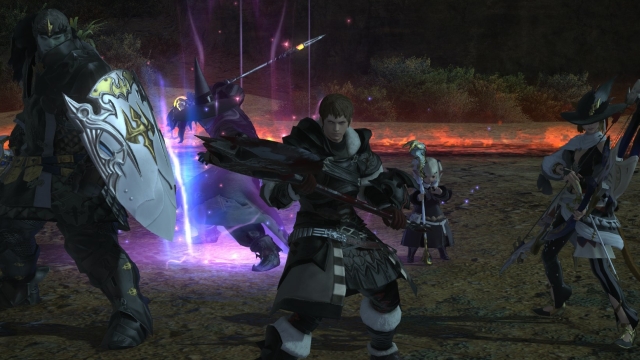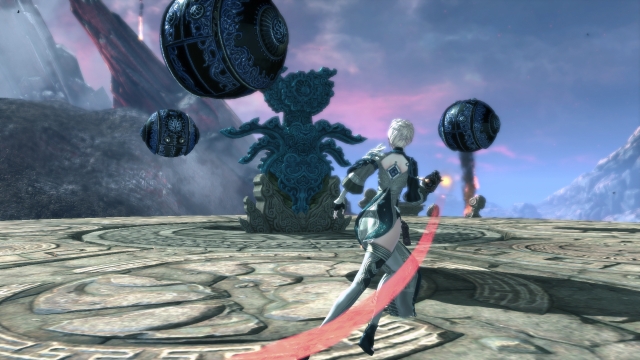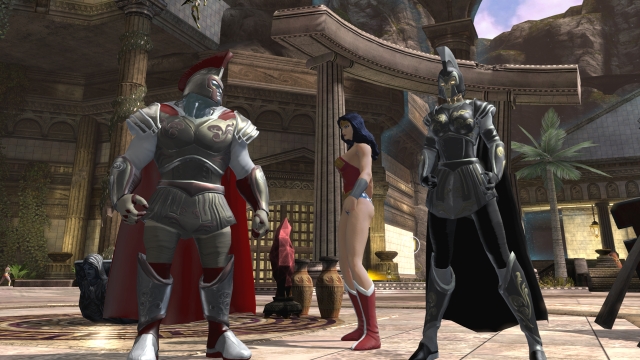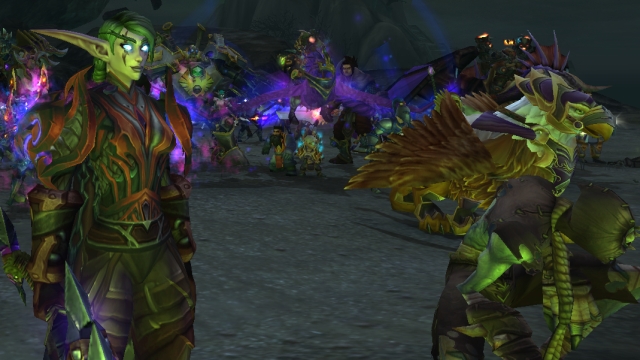Scheduling tools are useful. Gamer Launch has some great scheduling tools for its guild websites, and while many of my opinions might lead off with “do you really need this,” the answer here is almost always “yes.” You need a schedule if your guild is more than two people. It’s important.
The problem isn’t whether your guild may or may not need a schedule; the problem is that you may or may not know how to use that schedule. It’s like a screwdriver. You sure as heck need it, but if you don’t know what to do with it and try to use it as a hammer, you’re probably going to ruin everything.
So schedules are a lot like carpentry. Or… something other than carpentry. The point is, you need to know how to use them, and that’s what I’m talking about this week. So let’s dive right in.

Give lead time
First and foremost, it’s important to realize that not every single person is going to follow the schedule religiously. Some people are, and that’s great, but in order for the schedule to work, you cannot put an event on for early evening in the late afternoon. You need to give people lead time to see when things are happening and whether or not they’ll be available.
A good rule of thumb is to have three days of lead time for smaller events, five days for larger ones. That’s enough time for people to know when something is happening and be able to plan around it, including what times will need to be open. If I know that there’s an event I must attend in three days, I can juggle my schedule; if it’s a big event that’s going to take a lot of time, having more forewarning gives me more time to make things work.
Of course, that lead time only matters if people are actually checking the schedule on the regular. Which brings up the next point…
Drive people to the schedule
While events can often be run by members rather than just officers, it’s the officers’ job to make sure that players are being driven to the schedule by things actually happening there. And this is where a lot of officers can make mistakes, because the schedule is often treated as a reminder rather than the actual central point of contact. People didn’t check the schedule and the event is going to start now, but they didn’t sign up because they didn’t know, can they come anyway?
No. The answer is no. If you want to be a part of a scheduled thing, go and sign up.
You will not like saying this, because it makes you a jerk. And that’s fair. But it also sends the message that the schedule is something to actually use, not just an optional secondary aspect of the site. So don’t make last-minute all-calls for people who didn’t sign up. Didn’t sign up? You’re not in the event. Not enough people as a result? Event cancelled, reschedule.

Have regular things scheduled
The previous entry is the stick side; here’s the more carrot-based side. Officers should make sure that people are signing up for events on the schedule, but they should also be putting regular things on the schedule for the future. If you always want to have, say, a fun farm run for old raids in World of Warcraft on Fridays, put that on the schedule and let people discuss what they’d like to hit in the week leading up to that fun run.
Your guild’s activity is a good gauge for how much stuff you want to schedule, but I generally recommend between one and three events scheduled in advance on a regular basis. That’s enough stuff to make it clear that things are going on, but not so much that the schedule is crammed to the brim right from the start.
By that same token, that Friday fun run is a bad idea. Not the fun run aspect of it, but the Friday part.
Leave the weekends open
I’m not suggesting nothing should happen on the weekends; rather, I’m suggesting that officers should leave more space open for non-regular events on the weekends if at all possible. The reasons for this are multifaceted, first and foremost being that a lot of people have more plans in the real world on the weekends. If all of the events are taking place on the weekend, players are going to be reluctant to attend, and that’s not good.
The other reason, though, is that if you’re making events with a few days of lead time, the weekends are the perfect time to slot those events when most people will be able to attend. Around the middle of the week, people can be posting events for the weekend, and everyone can plan the next few days as the lineup starts to form. Regular events are better set to other times; progression raid nights, for example, are better scheduled early in the week, both to avoid burnout and to allow for pickups and rescheduling if things go south one night.

Distinguish between events and reminders
I’ve mentioned signing up for things before, and that’s an important aspect of events. But then there are things that you want to have on the schedule which aren’t actual events. For example, perhaps your guild’s most active crafter is always gathering and producing random stuff at the same time every week. There’s no event there, but it’s good to know, and if you have any stuff you want crafted that’s the time to ask for it.
A good schedule has both events and reminders on it. Events are things you sign up for and participate in; reminders are just stuff that’s happening that might have an influence on your play sessions. Heck, they need not even be guild-based things; having a reminder for important in-game events is just as useful. When is the next bounty week in Star Wars: The Old Republic? Toss a reminder on there.
Follow the schedule
This one is back into the slightly more jerk-based side of advice, but it needs to be said. If an event starts at 8, it starts at 8. That should not mean that 8 is when people are doing any of the following:
- Assembling groups for the event
- Farming items for the event
- Traveling to the location of the event
- Signing up for the event
Instead, people should be doing the following at 8:
- Starting the event
My personal system is to have a 30-minute warning in place before the event happens, both for myself and for other participants. That’s your time to get any of the other tasks you need accomplished before the event starts. And no, you shouldn’t throw fits if it’s 8:01 and someone is a moment late but otherwise prepared. But when you have a schedule, you should follow it, and you should have people who are punctual handling the scheduling of same. Just like driving people to the schedule, it makes you seem like a jerk when you do it, but it has benefits in the long run.

Be conscious of the shadow schedule
In any sufficiently large and long-running guild, you wind up with what I call shadow schedules. There might not be anything on the actual schedule, but everyone knows that Tom, Shannon, and Gina run certain stuff in Final Fantasy XIV around the same time every Thursday, and they’ll usually pull some guild members in with them.
There’s not a problem here, exactly, but it’s worth pulling Tom, Shannon, and Gina to one side (metaphorically) and asking why that isn’t on the schedule. Even if it’s not on every week’s schedule, having that there can be useful to let people know that it’s happening. It doesn’t even need to be something that someone signs up for as a formal event; just having it there as a reminder is in and of itself a way to make sure that people know it’s happening and are planning around it.
Keep the schedule useful
If you’re running an event, the scheduled event shouldn’t just contain a description; it should include where everyone’s meeting, what you’ll need to bring, what players should read up on, anything unusual going on, the whole shebang. The more information there, the better. Sure, it means you’ll need to do a little extra work to fill in all of the details, but that means people show up to the event prepared rather than confused.
As I said, a schedule is a good thing. Having one for your guild is a good thing. And when you’re handling it carefully? It winds up providing a great deal of information for your entire group. You just need to know what you’re doing.







Published: Sep 14, 2016 10:13 am